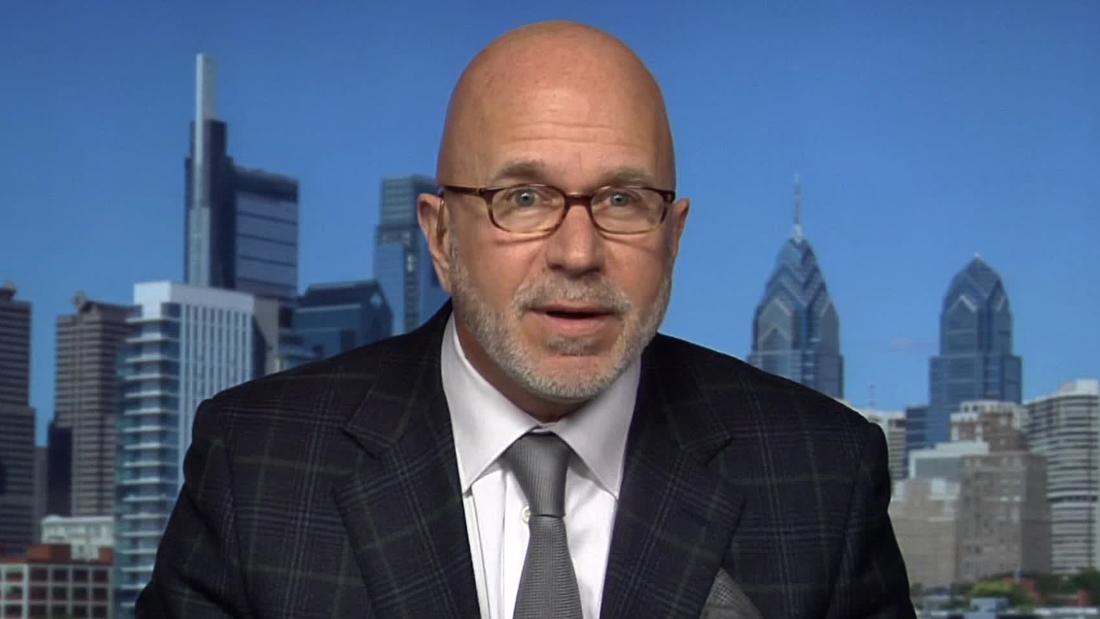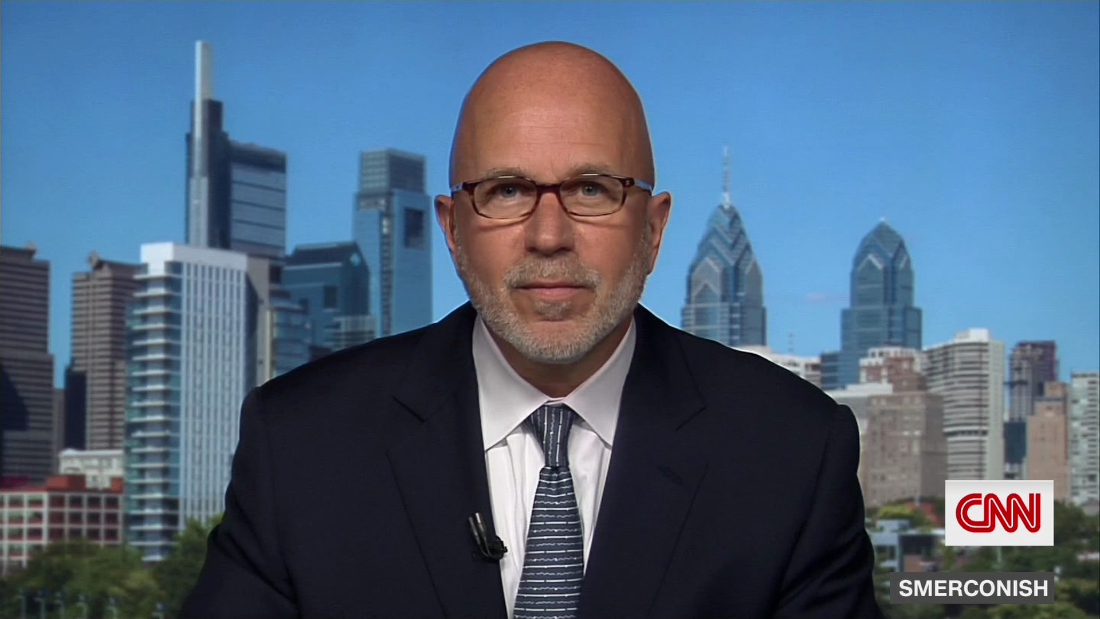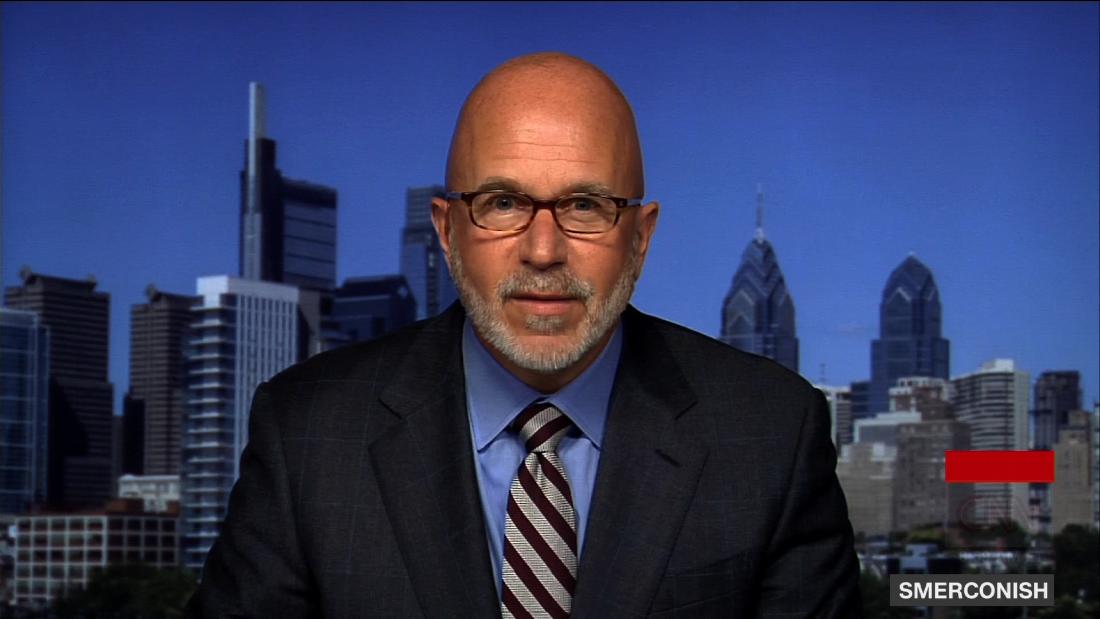Smerconish CNN Cancelled: The Inside Story You Need To Know
Breaking news in the world of late-night comedy has sent shockwaves through the entertainment industry. Smerconish on CNN has been cancelled, leaving fans and critics alike wondering what went wrong. This decision has sparked debates about the future of political talk shows and the challenges of balancing humor with serious journalism.
When the news broke that CNN had pulled the plug on Smerconish, many were left scratching their heads. The show, which aimed to blend sharp political commentary with a touch of humor, seemed like a promising addition to the network's lineup. But as it turns out, even the best-laid plans can fall apart. So, what really happened behind the scenes?
In this article, we’ll dive deep into the reasons behind the cancellation, explore the impact on the network, and examine the broader implications for the future of late-night TV. Whether you're a fan of the show or just curious about the inner workings of the media world, you're in for a wild ride.
Read also:Vanessa Villanueva The Rising Star Shining Bright In The Spotlight
Table of Contents
- Biography of Mike Smerconish
- Overview of Smerconish on CNN
- Why Was Smerconish Cancelled?
- CNN's Strategy and Challenges
- Audience Reaction to the Cancellation
- Impact on the Entertainment Industry
- Future Directions for Political Talk Shows
- Key Lessons from the Smerconish Saga
- Supporting Fans and Moving Forward
- Final Thoughts and Predictions
Biography of Mike Smerconish
Before we dive into the cancellation drama, let’s take a moment to get to know the man behind the show. Mike Smerconish is no stranger to the world of media and politics. With a career spanning over two decades, he’s made a name for himself as a sharp-witted commentator and best-selling author.
Here’s a quick look at his background:
| Full Name | Michael Smerconish |
|---|---|
| Birthdate | March 25, 1968 |
| Profession | Journalist, Author, Political Commentator |
| Previous Shows | "Morning Joe" (MSNBC), "Smerconish" (CNN) |
| Books | "PotUS: Marijuana and the Potent Policies Shaping America's High" and others |
Mike’s career has been defined by his ability to tackle tough issues with wit and intelligence. But even the best talent can face challenges when stepping into a new network environment.
Overview of Smerconish on CNN
Smerconish on CNN was touted as a bold move by the network to capture a younger, more engaged audience. The show aired weekdays at 9 p.m. ET and aimed to combine political analysis with a touch of humor. It was seen as a way to differentiate CNN from its competitors like MSNBC and Fox News.
However, the show faced stiff competition from established late-night staples like "The Daily Show" and "Last Week Tonight with John Oliver." Despite its promising premise, the ratings just weren’t cutting it. And in the cutthroat world of TV, numbers talk.
Why Was Smerconish Cancelled?
So, what exactly led to the show’s untimely demise? There are a few key factors that played a role:
Read also:Bollyflix Pro Your Ultimate Destination For Bollywood Entertainment
- Ratings Struggles: Let’s face it, if the audience isn’t tuning in, networks have to make tough decisions. Smerconish simply wasn’t attracting the numbers CNN was hoping for.
- Competition: With so many late-night options available, standing out is harder than ever. Smerconish had to compete not only with traditional news shows but also with comedy-driven programs.
- Tone and Style: Some critics felt that the show’s tone didn’t quite fit with CNN’s overall brand. Striking the right balance between serious news and lighthearted commentary can be tricky.
These factors, combined with shifting priorities at CNN, ultimately led to the show’s cancellation. But this isn’t the end of the road for Mike Smerconish. In fact, it might just be the beginning of something new.
CNN's Strategy and Challenges
CNN has been navigating some significant changes in recent years. The network is trying to reinvent itself in an era where traditional TV news is facing stiff competition from digital platforms and social media. This shift has forced CNN to rethink its approach to programming.
One of the biggest challenges is finding the right mix of content that appeals to both traditional news viewers and younger, more digitally savvy audiences. Smerconish was an attempt to bridge that gap, but it seems the network may have underestimated the difficulty of pulling it off.
As CNN continues to evolve, expect more experimentation with different formats and styles. The key will be finding that sweet spot where entertainment meets journalism.
Audience Reaction to the Cancellation
Fans of the show were understandably upset by the cancellation. Many took to social media to express their disappointment and share their thoughts on what went wrong. Some praised Smerconish for his unique perspective, while others felt the show lacked the spark needed to capture a wider audience.
Here’s what some fans had to say:
- "Mike’s insights are unmatched. I’m sad to see the show go."
- "Maybe it was too soon to try something so different. But I hope he gets another chance."
- "The timing just wasn’t right. Maybe in a few years, audiences will be ready for this kind of show."
Despite the cancellation, the outpouring of support from fans shows that there’s still a place for this kind of programming. It’s just a matter of finding the right platform and timing.
Impact on the Entertainment Industry
The cancellation of Smerconish has broader implications for the entertainment industry as a whole. It highlights the challenges faced by networks trying to innovate in an ever-changing media landscape. With streaming services and digital platforms gaining traction, traditional TV networks are under more pressure than ever to deliver fresh, engaging content.
For aspiring creators and hosts, this serves as a reminder that even the best ideas can face obstacles. But it also underscores the importance of adaptability and resilience in the face of setbacks.
Future Directions for Political Talk Shows
So, where does this leave the future of political talk shows? One thing is certain: audiences are hungry for content that speaks to their concerns and offers a fresh perspective. Networks will need to continue experimenting with new formats and styles to keep up with demand.
Some potential directions include:
- More Interactive Formats: Shows that incorporate live audience participation or Q&A sessions could help engage viewers in a more meaningful way.
- Blending News and Entertainment: Finding the right balance between serious journalism and entertainment remains a key challenge. Networks that crack this code will have a significant advantage.
- Digital Expansion: As more viewers consume content online, networks will need to focus on creating shows that work well in both traditional and digital environments.
These trends point to a future where political talk shows are more dynamic and engaging than ever before.
Key Lessons from the Smerconish Saga
From the Smerconish cancellation, we can draw several important lessons:
- Know Your Audience: Understanding who your viewers are and what they want is crucial to creating successful content.
- Be Prepared to Pivot: In a rapidly changing industry, flexibility and adaptability are key to survival.
- Don’t Be Afraid to Take Risks: While not every experiment will succeed, taking chances is essential to staying relevant.
These lessons apply not only to networks but also to creators and viewers alike. The entertainment industry is constantly evolving, and those who embrace change are more likely to thrive.
Supporting Fans and Moving Forward
For fans of Smerconish, the cancellation may feel like the end of an era. But it’s important to remember that this is just one chapter in a much larger story. Mike Smerconish has proven time and again that he’s a force to be reckoned with in the world of media. Wherever he goes next, you can be sure he’ll bring his signature wit and insight.
In the meantime, there are plenty of ways to stay engaged with the issues and topics Smerconish covered. Follow him on social media, check out his books, and keep an eye out for future projects. The world of media is full of possibilities, and who knows where this next adventure will take him.
Final Thoughts and Predictions
As we wrap up this deep dive into the Smerconish CNN cancellation, it’s clear that the story is far from over. While the show may have ended, the conversation it sparked continues to resonate. Networks will continue to experiment with new formats, and audiences will continue to demand fresh, engaging content.
Looking ahead, expect more innovation in the world of political talk shows. The future is bright for those who are willing to take risks and embrace change. So, whether you’re a fan of Smerconish or just a lover of great TV, the best is yet to come.
What do you think about the cancellation? Do you think Smerconish will find success elsewhere? Leave a comment below and let’s keep the conversation going. And don’t forget to share this article with your friends and followers. Together, we can keep the momentum going and support the creators we love.
Article Recommendations


